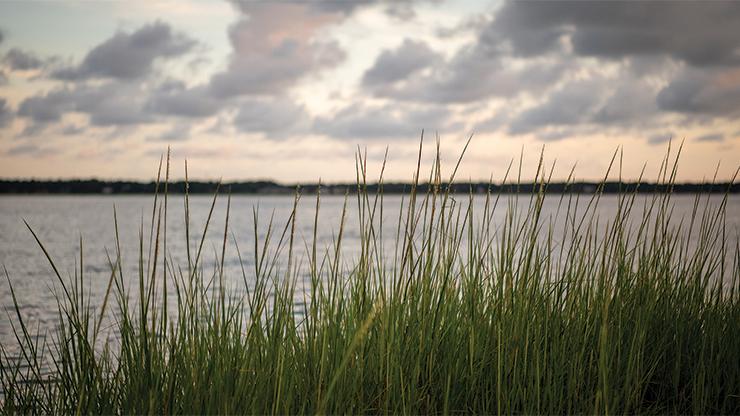
The North Carolina Department of Environmental Quality recapped what officials call “key actions” that took place over the last year that are “to protect the environment and health of all North Carolinians, and to address the impacts of climate change.”
Secretary Elizabeth S. Biser said in an announcement Thursday that NCDEQ is committed to protecting the resources and people of the state.
Supporter Spotlight
“We look forward to the opportunities in the year ahead to help communities replace aging infrastructure, improve air and water quality and build a more resilient North Carolina,” she said.
One action that took place in November was the approval of the 2021 Amendment to the North Carolina Coastal Habitat Protection Plan, a long-term effort to preserve coastal fisheries through habitat protection and enhancement.
The Coastal Resources Commission, Environmental Management Commission and Marine Fisheries Commission all unanimously approved the amendment, which includes recommended actions to improve the resilience of coastal habitats and communities, and protect the coastal economy that relies on clean water for tourism and fishing.
The amendment includes Appendix A, an early public comment submitted by an independent stakeholder workgroup led by the North Carolina Coastal Federation and The Pew Charitable Trusts, and Appendix C consisting of written public comments.
Also this year, the Division of Water Infrastructure released a draft Administration Plan for the $1.69 billion in federal funds appropriated in the state budget for drinking water, wastewater and stormwater infrastructure.
Supporter Spotlight
Division of Air Quality released the Phase 2 of the Volkswagen Mitigation Settlement funding plan, which details how the state will invest nearly $68 million in grants for vehicle replacements that reduce NOx and provide public health benefits.
Division of Marine Fisheries distributed more than $5.2 million in financial relief funded by the federal Coronavirus Aid, Relief, and Economic Security, or CARES, Act to 197 eligible members of fishing industries who sustained income losses in the spring of 2020 due to COVID-19.
The Division of Coastal Management awarded in March $675,000 in grants to 25 communities for technical assistance in risk assessment and resilience planning work under the North Carolina Resilient Coastal Communities Program.
In November, the division received nearly $546,000 in grant funding from the National Fish and Wildlife Foundation’s Emergency Coastal Resilience Fund 2021 grant cycle. The award, in addition to $1.15 million appropriated in the state budget, will be used to support community resilience through the program.
DEQ expanded the actions required by Chemours to address GenX/ PFAS (per-and polyfluoroalkyl substances) contamination in the Cape Fear Region. DEQ took enforcement actions against Chemours with fines of nearly $500,000 for several violations and for exceeding the facility-wide GenX annual air emissions limit.
DEQ filed a complaint and motion for Injunctive Relief in Mecklenburg County Superior Court to force Colonial Pipeline to meet their obligations as the responsible party in the state’s largest gasoline spill.
NCDEQ also shared the following 2021 grants and recognitions:
- The State Water Infrastructure Authority approved 142 drinking water and wastewater projects during February and July funding rounds. A total of nearly $436 million was awarded to help communities maintain and improve drinking water and wastewater infrastructure.
- The North Carolina Weatherization Assistance Program, which helps low-income residents save energy, reduce their utility bills and stay safe in their homes, disbursed more than $19 million in federal grants, allowing more than 1,250 homes to be weatherized and more than 800 HVAC units be repaired or replaced.
- With federal agencies, NCWAP and CARES Act grant funding, the State Energy Office awarded $211,400 to provide community solar resources for qualified low-income residents.
- The Division of Air Quality awarded $1.3 million in grants for projects to reduce air pollution from diesel-powered mobile sources.
- The Division of Coastal Management awarded more than $1.1 million to nine local governments to improve public access to coastal beaches and waters.
- The Division of Water Resources awarded $1.1 million from the federally funded 319 Grant program to six organizations to fund agricultural best management practices, stormwater retrofits, stream restoration, and educational and community mobilization activities.
- The Division of Environmental Assistance and Customer Services’ Recycling Program provided $492,937 in business development grants to 16 recycling companies.
- The Division of Waste Management awarded $500,000 to 64 county governments to support local electronics management programs, which provide residents with opportunities to recycle electronics like televisions and computer equipment, and awarded nearly $437,000 to 49 county governments to support scrap tire management programs.
- The Division of Mitigation Services completed 139 projects in 2021, representing $84.8 million invested with private and public firms, which restored, enhanced and protected 1.28 million linear feet of stream, nearly 7,120 acres of riparian wetlands, 1,092 acres of nonriparian wetlands, 16.6 acres of coastal marsh and 11.3 acres of riparian buffers.
- The Division of Mitigation Services instituted 25 new projects, using private mitigation providers, to restore, enhance and protect 73,085 linear feet of stream, 139.5 acres of riparian wetlands, 13.1 acres of nonriparian buffer, and 59.2 acres of riparian buffers, 11,418 pounds nitrogen reduction and 643 pounds of phosphorus reduction. The contracts for the new projects totaled $32.3 million.
- The department’s Environmental Stewardship Initiative recognized a new steward, two new rising stewards and nine new members. The program currently has 200 member sites.
- In 2021, 22 educators completed the Office’s Environmental Education Certification Program while 121 individuals enrolled in the program.







